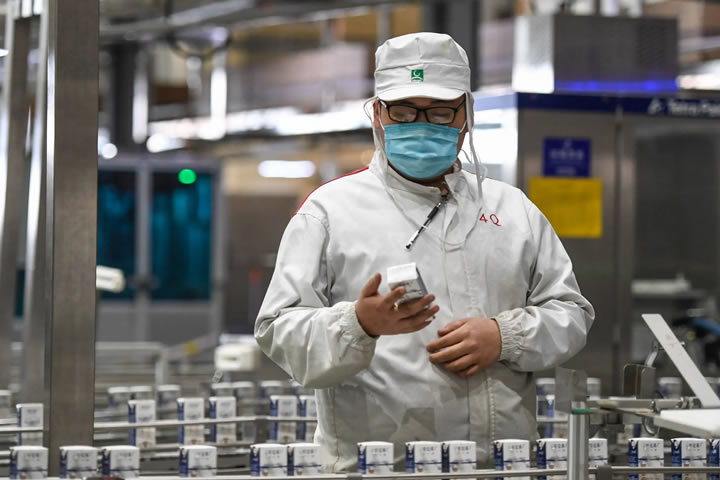"We have to switch more than a dozen packaging specifications a day, and the machine stops for two hours each time we change types. How can this efficiency keep up with order demand?" - This is the trouble that the production manager of a dairy company confided to us at the beginning of the year. Today, their production line has achieved the transformation of "5 minutes to switch, 10 seconds to start". As a technical team that participated in this project throughout the process, we would like to share through this case how modular packaging machines can solve the efficiency problem of multi-specification production.

Customer pain point: Downtime for changing types becomes a "black hole" of production capacity
This dairy company mainly produces boxed yogurt and bottled milk drinks, with more than 20 product specifications. Traditional packaging machines need to disassemble molds, adjust parameters, and manually calibrate each time they switch specifications, which takes an average of 90 minutes, resulting in nearly 30 hours wasted on changing types each month. What's more tricky is that frequent disassembly and assembly also accelerates the wear of parts, and maintenance costs remain high. "When orders are crowded in the peak season, we don't even dare to accept small batches of customized orders." The production manager admitted.
Breakthrough: Modular design + intelligent changeover system
In response to this challenge, we tailored a modular packaging machine solution for it. The core idea is to split the traditional integrated structure into independent functional modules, including feeding module, forming module and sealing module, each of which can be "hot-swapped" through the quick-release interface.
For example, when the production line needs to switch from 250ml yogurt box to 1L family pack, the operator only needs to:
Call the preset "1L specification" parameter package, and the system will automatically send it to each module;
Replace the folding mold of the forming module (snap-on installation, no tools required);
Scan the QR code on the sealing module to match the corresponding temperature and pressure parameters.
"During the first test, it only took 7 minutes from pressing the switch button to the first qualified product coming off the line!" recalled the on-site engineer. The key to this set of rapid changeover technology is to convert mechanical structure adjustments into digital instructions to reduce manual intervention.
Implementation results: from "not daring to accept orders" to "flexible production"
Since the modular packaging machine was put into production, the company has achieved three major breakthroughs:
Changeover time is reduced by 80%: conventional specifications are switched within 5 minutes, and complex special-shaped packaging does not exceed 15 minutes;
Manpower costs are reduced: the changeover operation that originally required 3 people to collaborate can now be completed by 1 person;
Faster order response: successfully accepted short-term orders for multiple niche flavored yogurts, and customer satisfaction has been greatly improved.
What makes us even more proud is that after the equipment was put into operation for half a year, the customer took the initiative to add a second production line. "This system not only solves the problem of changing models, but the modular design also reduces daily maintenance costs by 40%." The equipment supervisor added during the return visit.
Industry enlightenment: Modularity is the cornerstone of flexible manufacturing
Through this case, we deeply understand that the pain point of switching between multiple specifications of products is essentially the lack of equipment flexibility. The "big and complete" design of traditional packaging machines is no longer able to adapt to the trend of small batches and customization. The modular packaging machine can not only retain the efficiency of standardized production through a "building block" combination, but also quickly reconstruct functions like Lego.
At present, we are expanding this concept to more fields:
Develop a general module library compatible with the food and daily chemical industries;
Incorporate AI prediction functions into the rapid changeover technology to automatically pre-install molds according to order scheduling;
Build a cloud parameter sharing platform so that customers can download the industry's optimal configuration plan.
As our R&D director said at the project summary meeting: "Future packaging equipment should not allow users to 'adapt to machines', but let machines 'understand production'."

